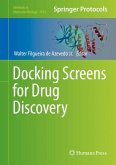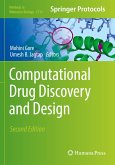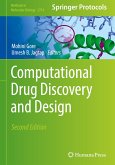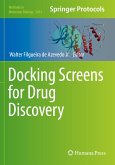This second edition volume expands on the previous edition with discussions on the latest advancements in artificial intelligence (AI) applications in protein-drug interaction studies, and describes applications of different computational methodologies for drug discovery and creating efficient docking workflows using Jupyter Notebooks. The chapters in this book cover topics such as AlphaFold; AI models to address protein-ligand interactions; machine-learning models to predict binding affinity based on the atomic coordinates of protein-ligand complexes; AutoDock Vina; Molegro Virtual Docker (MVD); and workflows integrating docking engines and machine-learning techniques to build regression models and apply them to drug discovery. Written in the highly successful Methods in Molecular Biology series format, chapters include introductions to their respective topics, lists of the necessary materials and reagents, step-by-step, readily reproducible laboratory protocols, and tips ontroubleshooting and avoiding known pitfalls.
Cutting-edge and thorough, Docking Screens for Drug Discovery, Second Edition is a valuable reference for all researchers interested in learning more about the development of computational tools for drug discovery.
Cutting-edge and thorough, Docking Screens for Drug Discovery, Second Edition is a valuable reference for all researchers interested in learning more about the development of computational tools for drug discovery.








